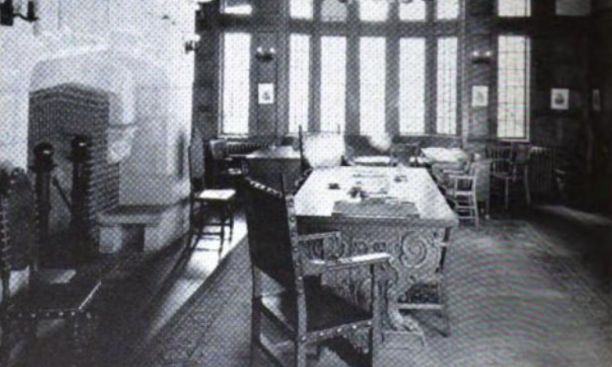
(This “hitherto unpublished essay” is actually a compilation of a number of quotations from Wilson’s speeches, books and articles written over a period of nineteen years. The compilation was prepared by the staff of the Third Century Fund.)
There is one thing I have a great enthusiasm about, I might almost say a reckless enthusiasm, and that is human liberty. The individual is indisputably the original, the first fact of liberty. There is no such thing as corporate liberty. Liberty belongs to the individual, or it does not exist.
Human freedom consists in perfect adjustment of human interests to one another. You cannot have liberty where men do not want the same liberty, you cannot have it where they are not in sympathy with one another, you cannot have it where they do not understand one another, you cannot have it when they are not seeking common things by common means.
Democracy is unquestionable the most wholesome and livable kind of government the world has yet tried. The people of a democracy are not related to their rulers as subjects are related to a government. They are themselves the sovereign authority, and as they are neighbors of each other, quickened by the same influences and moved by the same motives, they can understand each other.
It is for this that we love democracy: for the emphasis it puts on character; for its tendency to exalt the purposes of the average man to some high level of endeavor; for its just principles of common assent in matters in which all are concerned; for its ideals of duty and its sense of brotherhood.
A kind of liberal education must underlie every wholesome political and social process, the kind of liberal education which connects a man’s feeling and his comprehension with the general run of mankind, which disconnects him from the special interests and marries his thought to the common interests of great communities and of great cities and of great states and of great nations, and, if possible, with that brotherhood of man that transcends the boundaries of nations themselves.
It is the business of a university to impart to the rank and file of the men whom it trains the right thought of the world, the thought which it has tested and established, the principles which have stood through the seasons and become at length a part of the immemorial wisdom of the race.
The college should seek to make the men whom it receives something more than excellent servants of a trade of skilled practitioners of a profession. It should give them elasticity of faculty and breadth of vision, so that they shall have a surplus of mind to expends, not upon their profession only, for tis liberalization and enlargement, but also upon the broader interests which lie about them, in the spheres in which they are to be, not breadwinners merely, but citizens as well, and in their own hearts, where they are to grow to the stature of real nobility.
When all is said, it is not learning but the spirit of service that will give a college place in the public annals of the nation. It is indispensable, it seems to me, if it is to do its right service, that the air of affairs should be admitted to all its class-rooms. I do not mean the air of party politics, but the air of the world’s transactions, the consciousness of the solidarity of the race, the sense of the duty of man toward man, of the presence of men in every problem, of the significance of truth for guidance as well as for knowledge.
Liberty does not consist in mere general declarations of the rights of men. It consists in the translation of those declarations into definite actions. The philosophy of conduct is what every wise man should wish to derive from his knowledge of the thoughts and the affairs of the generations that have gone before him. We are not put into this world to sit still and know; we are put into it to act.
I have studied the history of America; I have seen her grow great in the paths of liberty and of progress by following after great ideals. Every concrete thing that she has done has seemed to rise out of some abstract principle, some vision of the mind. Her greatest victories have been the victories of peace and humanity.
And in days quiet and troubled alike Princeton has stood for the nation’s service, to produce men and patriots. Her national tradition began with John Witherspoon, the master, and James Madison, the pupil, and has not been broken until this day.
In planning for Princeton, moreover, we are planning for the country. The service of institutions of learning is not private, but public. It is plain what the nation needs as its affairs grow more and more complex and its interests begin to touch the ends of the earth. It needs efficient and enlightened men. The universities of the country must take part in supplying them.
This was originally published in the May 9, 1947 issue of PAW.
